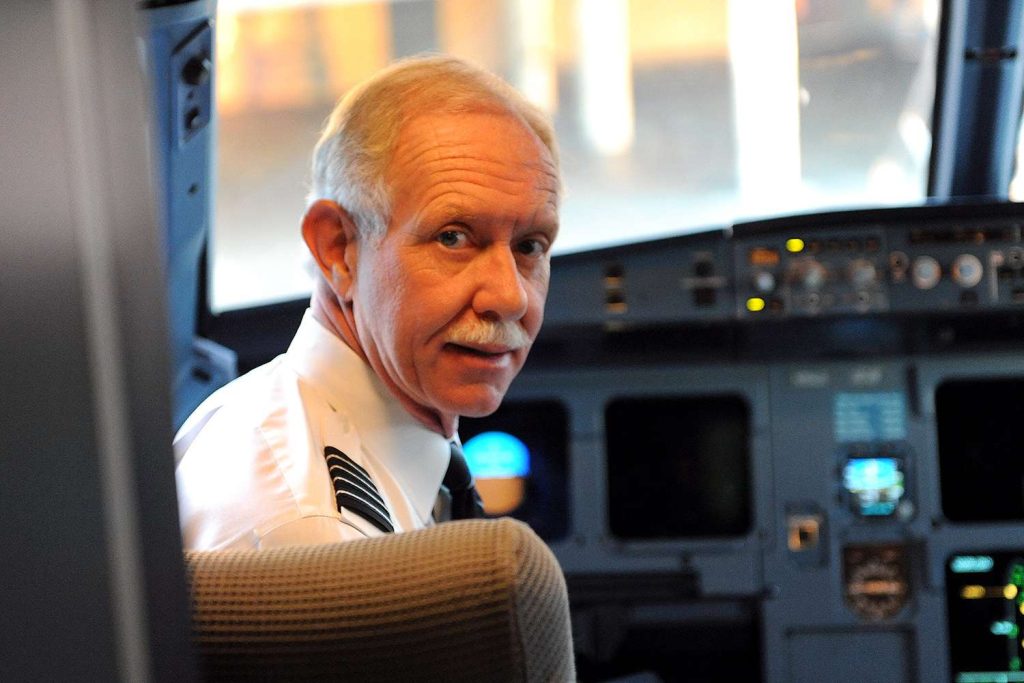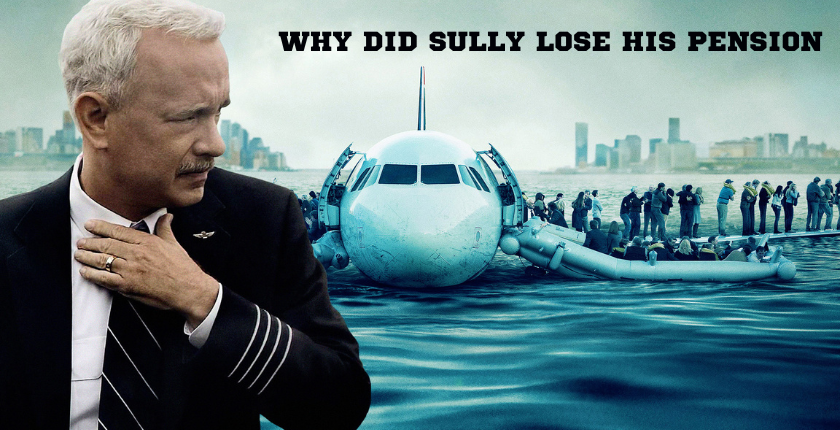Table of Contents
Explore the untold story behind Why Did Sully Lose His Pension? Explore the reasons and lessons learned. A must-read for financial insights.
On January 15, 2009, Captain Chesley “Sully” Sullenberger successfully landed US Airways Flight 1549 in the Hudson River after both engines failed to strike a flock of geese. All 155 people aboard the plane survived the dramatic water landing, deemed the “Miracle on the Hudson.” Sully was hailed as a national hero who saved lives through quick thinking and masterful flying skills.
However, later that year Sully lost his pension amidst the recession, and US Airways filed for bankruptcy. This seemed like an unfair outcome for the man praised for avoiding catastrophe. So why did the famous pilot lose his hard-earned pension despite his remarkable heroism?
Sully’s Long Career Before Fame
Chesley Sullenberger had a lifelong passion for aviation and dedication to safety. He learned to fly as a teenager and obtained his pilot’s license at age 14. Sully joined the U.S. Air Force in 1973 where he served as a fighter pilot and safety officer.
After the Air Force, Sully began his commercial pilot career in 1980 with Pacific Southwest Airlines which merged into US Airways in 1988. For nearly 30 years, Sully had an unblemished flying record before the events of that fateful Flight 1549.
The Dramatic Landing in the Hudson River
On January 15, 2009, Sully was the pilot of US Airways Flight 1549 from New York City to Charlotte, North Carolina. Shortly after takeoff, the plane struck a flock of geese causing both engines to fail.
With no power, Sully quickly determined the only viable landing option was the Hudson River. He safely glided the plane to a skillful water landing, allowing all crew and passengers to evacuate onto the aircraft wings and be rescued by ferry boats.
Sully’s calm expertise averted disaster and saved 155 lives, making him an instant celebrity dubbed the “Hero of the Hudson.” But the national fame was soon accompanied by the unfortunate loss of his pension.
Read also: How to Deal with Long Flight Anxiety

US Airways Bankruptcy and Pension Default
While Sully became renowned for his miraculous landing, the recession of 2008 had been hammering the airline industry. Rising fuel costs and reduced travel led US Airways into financial turmoil.
Just months after Flight 1549’s dramatic water landing, US Airways filed for Chapter 11 bankruptcy on August 11, 2002. This bankruptcy filing triggered the termination of their pension plan under federal pension law.
When pension plans default, the Pension Benefit Guaranty Corporation (PBGC) steps in to provide payouts up to a capped maximum. However, pilots often lose a large share of their promised benefits.
How Federal Rules Led to Sully Losing His Pension
Under Chapter 11 bankruptcy, companies can terminate defined benefit pensions owed to employees in default. Sully had a promised monthly lifetime pension of approximately $5,000 from US Airways when he retired at age 60.
However, after the bankruptcy proceedings, the PBGC maximum was only $2,861 per month. So despite Sully’s unparalleled aviation accomplishments, his pension dropped by 43% simply due to bankruptcy procedures out of his control.
The PBGC cited “severe underfunding” as the reason Sully’s pension dropped from $5,000 down to $2,861 per month. But the arbitrary rules still punished the exceptional pilot and American hero.
Backlash Over the Fate of Sully’s Pension
When the public learned Sully lost nearly half his rightfully earned pension, there was considerable backlash and calls for reform. It seemed unjust that federal rules allowed companies to abandon pensions during bankruptcy, even for highly regarded employees.
Many Americans were outraged that the famous captain lost a significant portion of his retirement funds through no fault of his own. Sully became the poster person exemplifying the need to reexamine bankruptcy-triggered pension defaults.
Sully’s Own Response to Losing His Pension
How did Sully himself respond when his pension dropped from over $60,000 to less than $35,000 annually? In an interview with Katie Couric, Sully displayed the same gracious professionalism the public admired.
While frustrated, Sully chose not to vilify the outcome. He acknowledged the recession battered many companies and employees suffered together. Sully expressed gratitude for the portion still paid and went forward without bitterness.
Sully’s classy response further cemented his reputation as an American role model. He declined to join lawsuits aimed at reallocating defaulted pensions, focusing instead on safety advocacy work.
Reform Efforts to Protect Workers’ Pensions
Outrage over the loss of Sully’s pension triggered efforts to reform bankruptcy laws and protect defined benefit plans. The Employee Pension Preservation Act was introduced to mandate companies fund pensions sufficiently or pay the PBGC insurance premiums.
However, the legislation stalled as opponents argued reforms would make lenders leery and complicate reorganization for struggling firms. Still, public sentiment remained with protecting promised pensions, especially for employees like Sully.
Loss Assessed Against Sully’s Overall Treatment
Looking at the bigger picture, many pointed out that despite losing his full pension, Sully fared better than most employees of bankrupt companies. He was still paid well over the PBGC maximum.
Sully also received lucrative rewards, honors, speaking fees, book deals, and consulting gigs after Flight 1549. Within four months of his famous landing, Sully’s income exceeded $3 million.
So although the pension loss seemed unfair, Sully’s overall outcome remained positive due to his justifiable fame, reputation, and opportunities.
Lessons Learned from Sully’s Pension Forfeiture
The major lessons from Sully losing his pension include:
- Federal law allows pension defaults during bankruptcy, reducing promised benefits.
- Most employees are capped at the PBGC maximum if pensions default.
- Public sentiment leaned towards reforming laws to better protect pensions.
- Sully handled the situation graciously, without pursuing legal action.
- The famous pilot still benefited in many ways from his renown.
So while Sully’s pension outcome seemed unjust, the pushed desire to reevaluate bankruptcy procedures proved one positive result.
Final Answer – Why Did Sully Lose His Pension
In summary, federal pension laws resulted in Captain Sully Sullenberger losing 43% of his rightfully earned pension despite piloting the “Miracle on the Hudson.” This seemed unfair considering Sully’s lifetime dedication to aviation safety and instant fame after saving 155 lives from disaster.
The bankruptcy rules allowing companies to terminate pensions fueled public outrage and calls for reform. While Sully handled the situation with grace and class, his case highlighted the need to better safeguard promised benefits for loyal employees, even amidst financial turmoil.
Although Sully lost a significant portion of his monthly retirement funds, he still benefited greatly from the opportunities his reputation afforded. The famous captain became both the face of pension injustice and the embodiment of gracious professionalism while moving forward. I hope you understand Explore the untold story behind Why Did Sully Lose His Pension?




